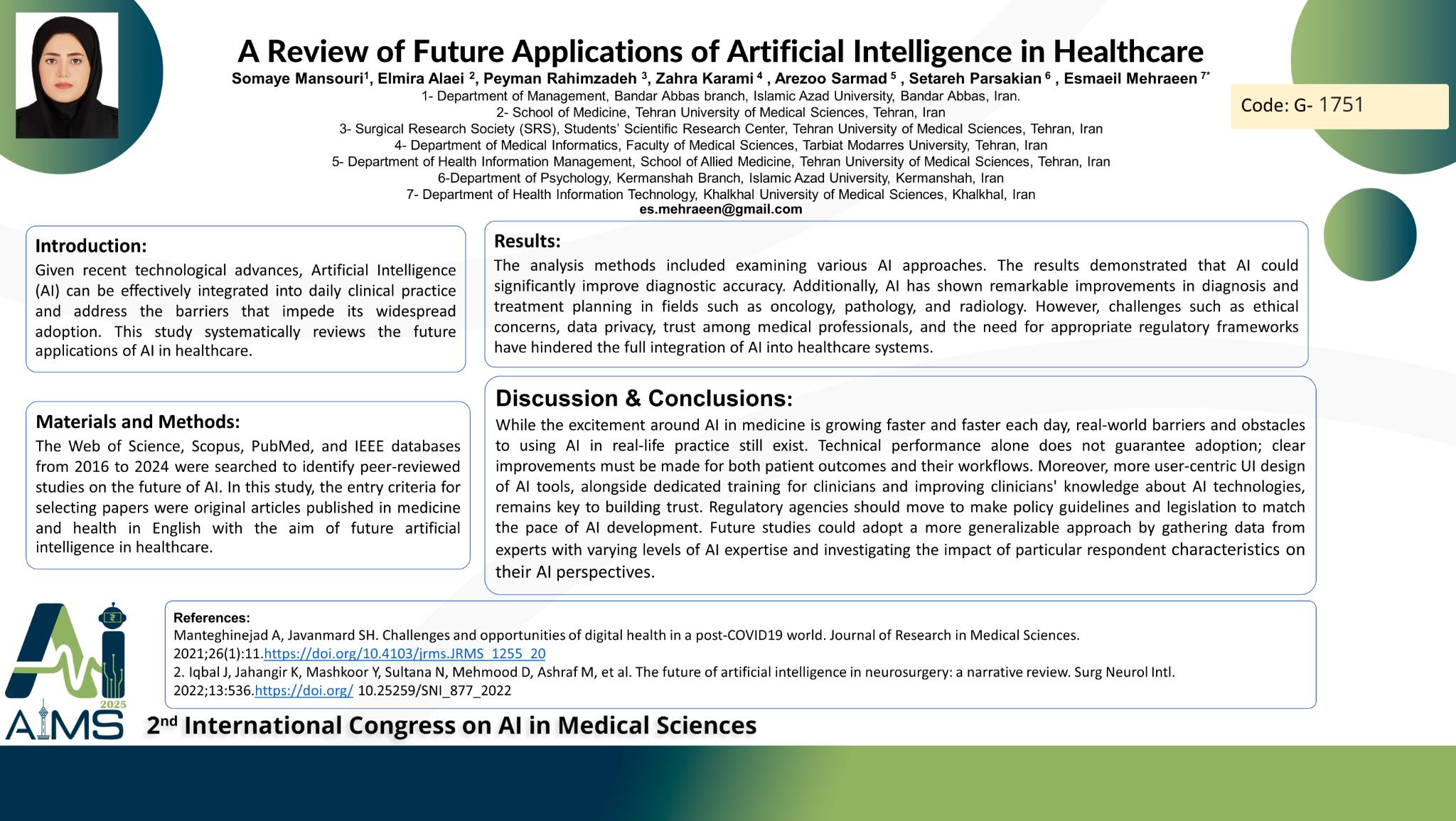A Review of Future Applications of Artificial Intelligence in Healthcare
Code: G-1751
Authors: Somayeh Mansouri ℗, المیرا اعلایی, پیمان رحیم زاده, زهرا کرمی, آرزو سرمد, ستاره پارساکیان, اسماعیل مهرآیین *
Schedule: Not Scheduled!
Tag: Clinical Decision Support System
Download: Download Poster
Abstract:
Abstract
Background and aims: Given recent technological advances, Artificial Intelligence (AI) can be effectively integrated into daily clinical practice and address the barriers that impede its widespread adoption. This study systematically reviews the future applications of AI in healthcare. Method: The Web of Science, Scopus, PubMed, and IEEE databases from 2016 to 2024 were searched to identify peer-reviewed studies on the future of AI. In this study, the entry criteria for selecting papers were original articles published in medicine and health in English with the aim of future artificial intelligence in healthcare. Results: The analysis methods included examining various AI approaches. The results demonstrated that AI could significantly improve diagnostic accuracy. Additionally, AI has shown remarkable improvements in diagnosis and treatment planning in fields such as oncology, pathology, and radiology. However, challenges such as ethical concerns, data privacy, trust among medical professionals, and the need for appropriate regulatory frameworks have hindered the full integration of AI into healthcare systems. Conclusion: While the excitement around AI in medicine is growing faster and faster each day, real-world barriers and obstacles to using AI in real-life practice still exist. Technical performance alone does not guarantee adoption; clear improvements must be made for both patient outcomes and their workflows. Moreover, more user-centric UI design of AI tools, alongside dedicated training for clinicians and improving clinicians' knowledge about AI technologies, remains key to building trust. Regulatory agencies should move to make policy guidelines and legislation to match the pace of AI development. Future studies could adopt a more generalizable approach by gathering data from experts with varying levels of AI expertise and investigating the impact of particular respondent characteristics on their AI perspectives.
Keywords
Artificial Intelligence, Machine Learning, Deep Learning
